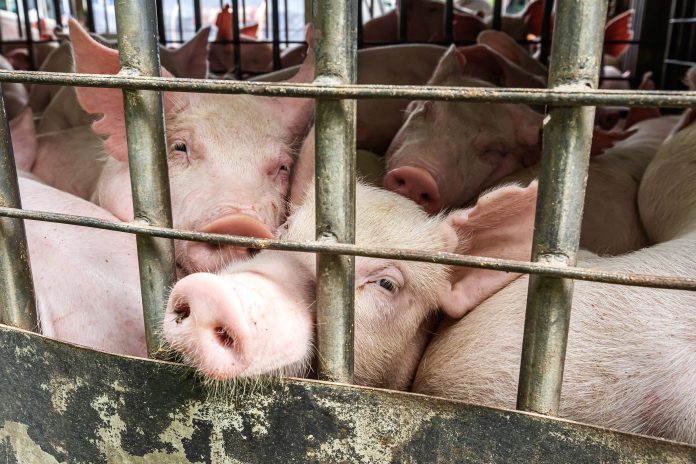
Breaking! EU Implements New Rules For The Transport Of Animals During Live Export; May This Be A Step To Ending The Archaic Practice In The Future
By Lauren Lewis
You can help all animals and our planet by choosing compassion on your plate and in your glass. #GoVeg
RELATED ARTICLES
Banning Cruelty: New Legislation Aims To Ban Octopus Farming In The U.S.
New bipartisan legislation has just been introduced in the U.S. to ban commercial octopus farming and prohibit imports of farmed octopus from foreign countries.
The...
Outrage In Yellowstone! Grizzly Bear Killed By Wildlife Officials & Left With Head & Paws Cut Off
Photo by: Trisha McFarland / Cowboy State Daily
A photo of a dead grizzly bear with its head and paws cut off has caused an...
Inside Florida’s Illegal Horse Meat Trade: Undercover Footage Shows Racehorse Being Shot & Butchered
A heart-wrenching discovery of illegal horse slaughter has emerged, with video footage exposing the tragic killing of a racehorse named 'Funny Biz,' who was...
Popular stories
News
The U.S. Gets Tough On Wildlife Traffickers Imposing Strict Visa Restrictions On Eight Smugglers From The Democratic Republic Of Congo
The U.S. Department of State is disrupting wildlife trafficking networks by imposing visa restrictions on eight nationals from the Democratic Republic of the Congo (DRC). These...
News
More Shocking Abuse Is Exposed In New Undercover Investigation Of South Korea’s Dog Meat Trade
A new five-month-long undercover investigation by Los Angeles-based Last Chance for Animals (LCA) and Seoul-based Animal Liberation Wave (ALW) has revealed more shocking atrocities...
News
Seven Stranded Atlantic White-Sided Dolphins Rescued By IFAW In Massachusetts
Photos by Andrea Spence/IFAW
Local experts from the International Fund for Animal Welfare (IFAW) deployed last week to rescue seven Atlantic white-sided dolphins in Wellfleet, Massachusetts.
Thanks...


